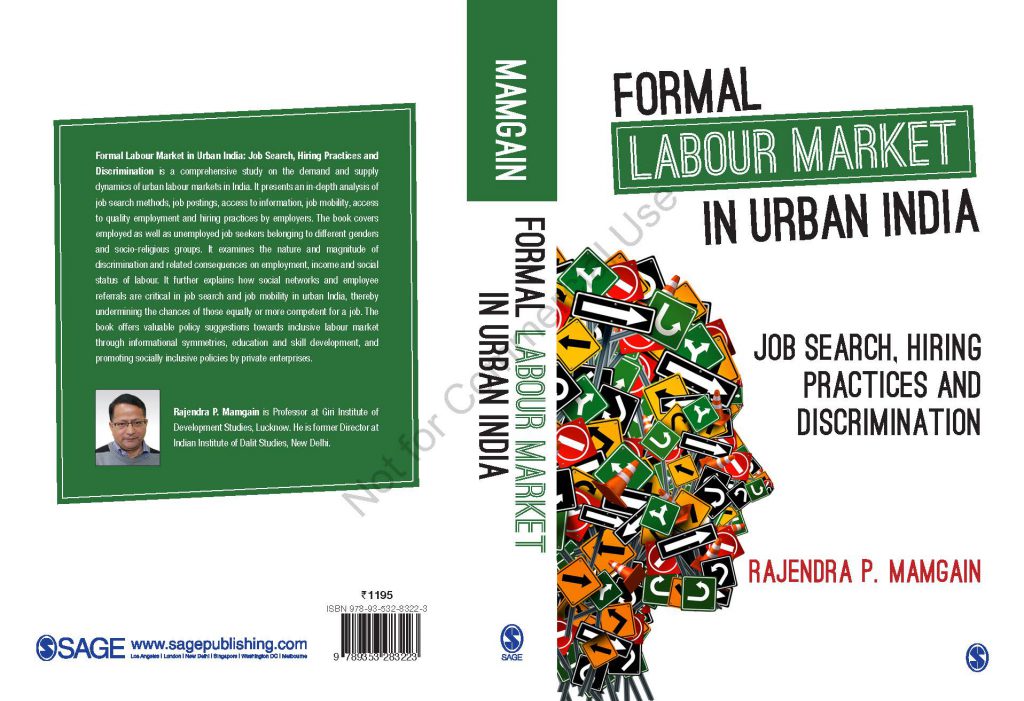This is a highly insightful book examining the way in which generations old inequalities by caste, ethnicity and religion interact with modern labour markets to reshape the opportunity structures in contemporary India. Its primary strength lies in its careful examination of job search strategies and the processes through which employers choose to interview and hire some candidates while excluding others.
Mamgain, Rajendra P. (2019)
Formal Labour Market in Urban India
Job search, Hiring Practices and Discrimination
New Delhi, India: SAGE Publications.

Rajendra P. Mamgain is Professor of Economics, Giri Institute of Development Studies, Lucknow, India. He is a former Managing Editor of the Indian Journal of Labour Economics and former Director, Indian Institute of Dalit Studies, New Delhi.
Table of Content
Foreword by Sukhadeo Thorat
Preface
Introduction: Labour Market
Employment and Unemployment Situation in Urban India
City-Level Features of Employment and Unemployment
Job Search Methods and Access to Jobs
Job Mobility in Urban Labour Market
Wage Earnings and Inequality
Hiring Practices in Urban Labour Market
Discrimination and Promoting Inclusive Employment Opportunities
References
Index
Summary
This book is a comprehensive study on the demand and supply dynamics of urban labour markets in India. It presents an in-depth analysis of job search methods, job postings, access to information, job mobility, access to quality employment and hiring practices by employers. The book covers employed as well as unemployed job seekers belonging to different genders and socio-religious groups. It examines the nature and magnitude of discrimination and related consequences on employment, income and social status of labour. It further explains how social networks and employee referrals are critical in job search and job mobility in urban India, thereby undermining the chances of those equally or more competent for a job. The book offers valuable policy suggestions towards inclusive labour market through informational symmetries, education and skill development, and promoting socially inclusive policies by private enterprises.


Ends;
